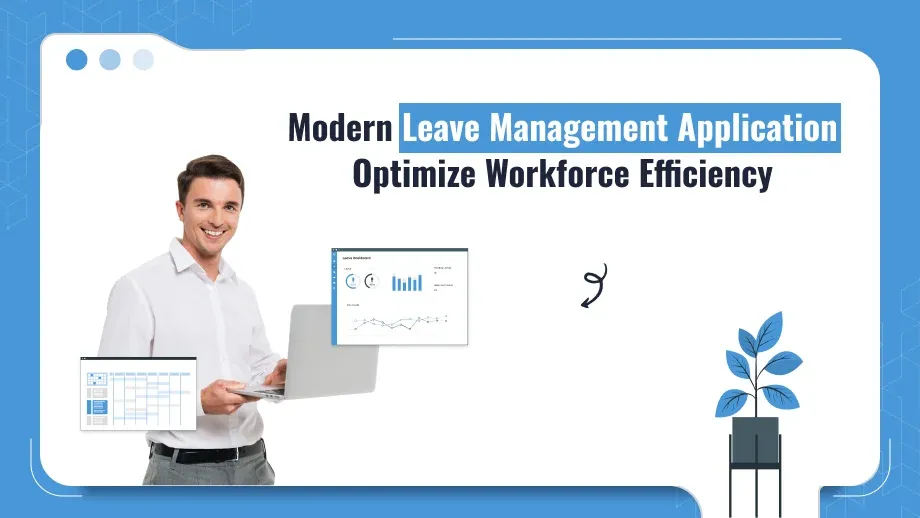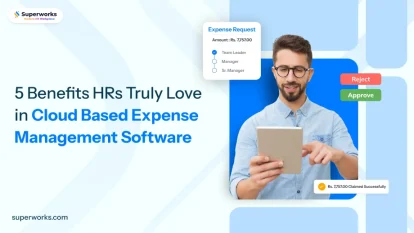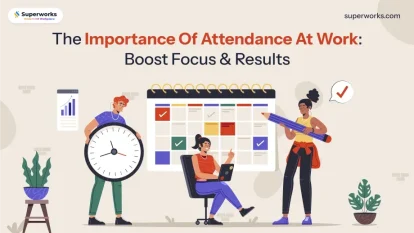
Introduction: Why a Leave Management Application is Needed
Employee leave management is an important but frequently neglected function in an association. Without a streamlined process, companies face issues like inaccurate leave records, scheduling conflicts, and payroll crimes. That’s where a leave management application comes in. It’s a complete solution that automates the entire leave process – from approval application – making it easier for both workers and directors to manage leave requests.
The traditional way of handling leave applications is to send a formal leave application to a manager, stay for approvals, and also update records manually. This process isn’t only time-consuming but also error-prone. A digital leave application management system eliminates these inefficiencies and gives real-time tracking and simple workflows.
For organizations in India and globally, implementing employee leave management software is no longer a luxury but a necessity to run the business smoothly. Also integrating such a system with broader HR software in India or HRMS Payroll Software in India can further optimize workforce management.
Challenges of Traditional Leave Management
Traditional leave management methods like spreadsheets or paper-based applications have several issues:
Manual Errors: Manual handling of leave balances increases the chances of errors, especially when employees apply for multiple types of leave like paid time off, sick leave, or emergency leave.
Poor Communication: When employees submit their leave application to manager to a manager through email or handwritten notes, there’s a chance of lost communication or delayed approvals.
No Transparency: Without a centralized system, both employees and management struggle to know who is on leave hence scheduling conflicts.
Compliance Risks: Lack of tracking can lead to non-compliance with labor laws and hence legal issues.
Reduced Productivity: Mismanagement of employee leave creates disruptions, especially in project-based environments where team availability is critical.
These challenges demand a digital leave management that automates the entire leave cycle and integrates with existing systems.
What is a Leave Management Application?
A leave management application is a digital platform to manage all aspects of employee leave. It provides a structured format for workers to submit their leave applications and for managers to review and confirm or reject these employments in real-time.
This application automates:
Leave Requests: Employees can submit a detailed online leave application to manager with the type of leave and duration.
Approval Workflows: The employment can be routed to the designated authority whether it’s a direct manager or an HR lead.
Leave Balance computations Leave balances are maintained directly, modernized in real-time, and accessible to both workers and managers.
Reporting and Analytics: Leave trends, employee fullness, and absenteeism reports are generated to help in decision-making.
Leave Policy Enforcement: It ensures that company leave policies are followed, and reduces the administrative burden on the HR team.
Reporting and Analytics: Leave trends, employee availability, and absenteeism reports are generated to help in decision-making.
By applying a hand leave management system, organizations can ensure that leave management in HR is smooth, transparent, and aligned with business objectives.
65% Quicker Experience Authorization of Leave Management Application through Superworks HRMS.
Countless Happy Users Are Here To Help You Enjoy Easy HR Procedures!
Key Benefits of a Leave Management Application
Implementing a leave management application brings many benefits to any organization:
Increased Efficiency
The entire process of applying for leave, sending leave application hr manager, and updating records is automated, reducing manual effort and time spent on mundane tasks.
Better Leave Planning and Scheduling
The leave planner feature in the application helps to track team availability and makes it easy for managers to plan resources without overloading any single team member. This is especially useful when managing larger teams across multiple locations.
More Transparency
A leave management system ensures that both employees and managers have visibility into leave balances, upcoming leaves and approved leaves, reducing confusion and potential conflicts.
Accurate Payroll Management
By integrating leave management with HRMS Payroll Software in India, organizations can automate payroll calculations and ensure salaries reflect accurate leave deductions and bonuses.
Compliance with Labour Laws
Leave management in compliance with local and global labor laws is crucial. Digital leave management can be customized to follow these laws and ensure no legal risks.
Better Employee Experience
Employees don’t have to go through the tedious process of submitting a paper leave operation to the HR leave management manager.
Data-Driven Insights
The Analytics capability of an employee leave management system helps organizations spot trends like frequent absences, overutilization of certain leave types, and more. This information can be used to shape policies and improve workforce management.
What to Look for in a Leave Management Application
When choosing a leave management, consider the following features:
Simple User Interface
A good leave management should be easy to use, employees should be able to submit leave applications hr manager and check their leave balances without any training.
Custom Leave Policies
The system should allow the creation of custom leave types and policies like casual leave, medical leave, or special leave types, as per organizational rules.
Integration with Existing Systems
For seamless functioning, the leave management system should integrate with payroll, attendance, and broader HR software.
Mobile Accessibility
Mobile version availability allows employees to submit leave requests, track status, and view leave balances on the go.
Multi-Level Approval
Configurable workflows ensure the right person reviews the employee leave application at each stage.
Automated Notifications and Alerts
Leave management should send automated emails or app notifications to employees and managers, to keep them informed of leave status, approval updates, and policy changes.
Reporting and Analytics
Look for a leave management system that provides detailed reports, showing absenteeism trends, leave utilization patterns, and team availability.
Best Practices to Implement a Leave Management Application
Implementing a leave management can be overwhelming but following these best practices can make it smooth:
Assess Current Leave Practices
Conduct a thorough review of current leave processes and identify the challenges. This will help in choosing a leave management system that addresses your specific needs.
Define Objectives
Set specific goals like reducing approval time or improving leave policy compliance.
Involve Key Stakeholders
Get team leads and decision makers to get their feedback and ensure the system meets everyone’s needs.
Customise to Organisation Needs
Make sure the chosen leave application can be customized to accommodate different leave types and organizational policies.
Train Employees
Training employees to submit leave applications through the new system is essential for adoption.
Monitor and Feedback
Assess the leave application regularly and collect feedback for improvements.
Conclusion: Leave Management Application for Organisations
Implementing a leave management application is a strategic advantage for all organizations. From automating leave applications to managers to ensuring compliance and providing insights, a good employee leave management system is a must for workforce optimization. By integrating with broader HR software in India or HRMS Payroll Software in India, organizations can get a complete solution that increases productivity, transparency, and employee experience.









